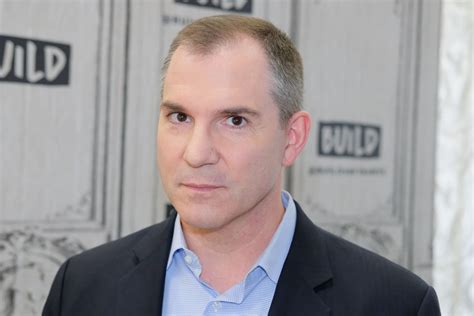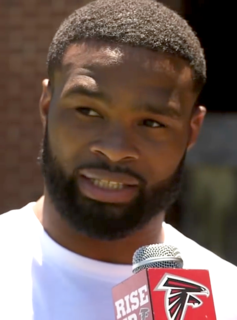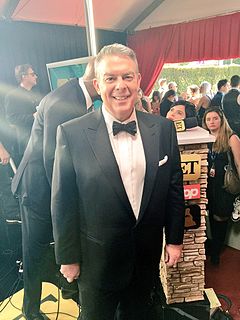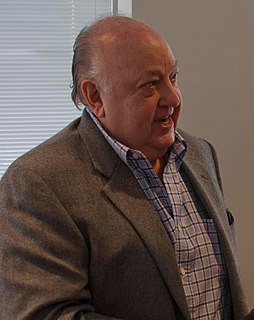A Quote by Frank Bruni
We still write too many stories that are "state of the race" stories that are informed almost solely by what the polling shows and by what we're then deducing about who's up, who's down, and I'm just not sure that's very helpful to readers, it certainly doesn't elevate the debate and, and the problem is if you, if you cover these things, and I don't think the Times is particularly culpable, I think other news organizations are worse, if you cover them in an entirely "who's up, who's down" horse race way.
Related Quotes
I think many times news organizations, whether it's for lack of resources or something else, cover the headlines and don't follow up, even though the story continues for the people living there - they can't leave. I think it's critical that they do these follow-up stories to realize that there is still suffering, and the need is dire.
In the past, I said I didn't want to speak on certain issues because the second I said one thing about race, then 'Tyron's playing the race card.' But if you really think about it, what is the race card? The race card is that the man held me down, I had unfair circumstances, and I wasn't able to be successful because I was held down.
As I get older I find myself thinking about stories more and more before I work so that by the time I eventually sit down to write them, I know more or less how it's going to look, start or feel. Once I do actually set pencil to paper, though, everything changes and I end up erasing, redrawing and rewriting more than I keep. Once a picture is on the page I think of about ten things that never would have occurred to me otherwise. Then when I think of the strip at other odd times during the day, it's a completely different thing than it was before I started.
It used to be, if you were a reporter, you wrote a story and then you moved on to the next one. We were used to people coming to the New York Times. We waited for them to turn on our website or to pick up our print paper and see what we have. We now understand that we have to make our stories available to our readers. A lot of people get their news from Facebook or Twitter and we want to make sure that they see some of our best stories there, too. We do this more aggressively now than we did before.
I think people are attracted to The Huffington Post's blend of up-to-the-second news and thoughtful opinion, delivered with an attitude. Plus, I think they enjoy that we cover so many different things - from politics and entertainment to style and satire. There is always something interesting to read and think about - and even to laugh at.
Some of the stories I admire seem to zero in on one particular time and place. There isn't a rule about this. But there's a tidy sense about many stories I read. In my own work, I tend to cover a lot of time and to jump back and forward in time, and sometimes the way I do this is not very straightforward.
After 'Freaks and Geeks,' I dealt with several producers who wanted to cover up all my beauty marks, every single mole on my body. They tried to cover them on my first two episodes of 'Dawson's Creek,' and it just looked ridiculous, so I had to put my foot down. But it's not something I'm insecure about.
I regret that there aren't more short stories in other magazines. But in a certain way, I think the disappearance of the short-story template from everyone's head can be freeing. Partly because there's no mass market for stories, the form is up for grabs. It can be many, many things. So the anthology is very much intended for students, but I think we're all in the position of writing students now. Very few people are going around with a day-to-day engagement with the short story.
My job is to cover the hell out of the story, very aggressively. The real place to be courageous if you're a news organization is where you put your people to cover the story. It's making sure that you have people going to Baghdad. It's making sure that you figure out how to cover the war in Afghanistan. While the journalist in me completely stands with them, the editor of the New York Times in me thinks my job is to figure out what the hell happened and cover the hell out of it, and that's more important than some symbolic drawing on the front page.
































